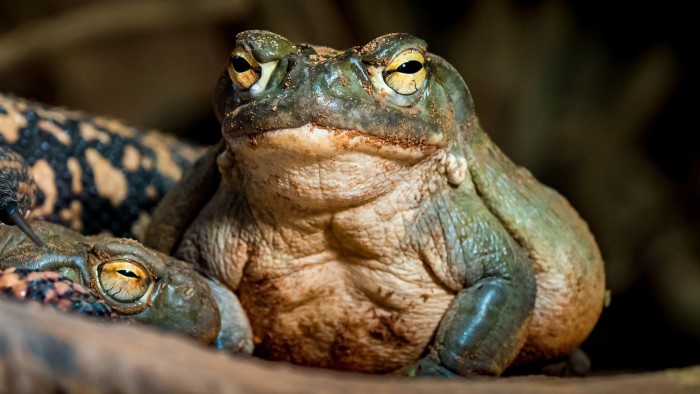Unlock the Editor’s Digest for free
Roula Khalaf, Editor of the FT, selects her favourite stories in this weekly newsletter.
A psychedelic nasal spray requiring a much shorter period of clinical supervision has shown promise against treatment-resistant depression, giving biotechs hope that this type of drug will become a viable option for healthcare systems to use for mental health conditions.
Atai Life Sciences and Beckley Psytech announced on Tuesday that patients in their trial of mebufotenin benzoate — based on a compound found in many plants and the venom of the Colorado River toad — demonstrated “clinically meaningful” reductions in depressive symptoms as soon as the day after treatment.
The effect of a single treatment lasted for the trial of eight weeks without plateauing by the end and there were no serious side effects.
Up to half of the 300mn people who have been diagnosed with depression globally have treatment-resistant depression, defined as not responding to two or more different antidepressants.
Many biotech companies developing psychedelic treatments for psychiatric illness are looking for ways to cut the amount of clinical supervision required, so they are quicker and cheaper for healthcare systems and patients.
 Cosmo Feilding-Mellen, chief executive of Beckley Psytech, said if data from larger trials was positive and led to approval, it would be a ‘huge step forward for patients’
Cosmo Feilding-Mellen, chief executive of Beckley Psytech, said if data from larger trials was positive and led to approval, it would be a ‘huge step forward for patients’
The trial of 193 patients in six countries found that the majority were ready for discharge 90 minutes after the dose, a marked improvement from previous trials of psychedelic treatments, where patients required supervision for a whole day.
Cosmo Feilding-Mellen, chief executive of Beckley Psytech, said if data from larger trials was positive and led to approval, it would be a “huge step forward for patients, and . . . usher in a new era for mental health conditions”.
Atai Life Sciences and Beckley Psytech now hope to take the drug into a phase 3 trial that would be required for approval. Regulators have not yet approved any psychedelic treatments but many are in trials for conditions including post-traumatic stress disorder, anorexia and other types of depression.
Feilding-Mellen said the company had “always believed that psychedelics could make a really big difference for patients with mental conditions”.
“The big question was, how do you make those treatments genuinely accessible and commercially viable for patients and the healthcare system?” he said.
Johnson & Johnson uses a network of clinics to deliver its Spravato nasal spray for treatment-resistant depression, which requires two hours of clinical supervision. This pre-existing infrastructure could make it easier for other companies to roll out psychiatric drugs that require supervision.
Some companies in the sector are hopeful that the new US health secretary Robert F Kennedy Jr could be more open to the therapeutic use of psychedelics.
Berlin-based Atai Life Sciences bought UK biotech Beckley Psytech last month in an all-share deal that valued Beckley at $390mn.
Shares in psychedelics companies have fallen significantly from their peaks in 2021, even more than the broader biotech industry. Many do not yet generate any sales and investors view them as at the riskier end of the sector. Shares in Atai Life Sciences are down 89 per cent since the initial public offering in June 2021.
But Feilding-Mellen said interest in their drugs was higher than it was three years ago. “There is unquestionably a growing acceptance and interest in psychedelics as treatments from the top tier biotech funds and pharmaceutical companies,” he said.
